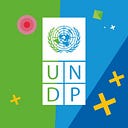How do you stop a vicious cycle? Finding new solutions to halt Somalia’s damaging charcoal trade
Many of Somalia’s poorest people are caught in a vicious cycle that is threatening to turn the country’s remaining areas of arable land into desert.
In a country struggling to cope with the effects of climate change and socio-economic and political instability, desertification exposes the population to even greater risks of droughts and flooding and heightened insecurity of food and energy.
The key human causes of desertification have long since been identified in the unsustainable use of land, including Somalia’s environmentally devastating trade in charcoal.
The destructive effects of cutting down trees for charcoal led the UN Security Council to impose a ban on exports of charcoal from Somalia in 2012. Ratified by the government and supported by the efforts of neighbouring countries and UN agencies, the ban has proved effective in drastically reducing exports of charcoal over the past eight years.
With few alternative opportunities available to make a living, however, many Somalis have continued to cut down trees for charcoal to trade domestically — destroying their own futures in a trade that led to the loss of over eight million trees in the period 2011–17 alone.
Like many development challenges, success in changing environmentally destructive practices depends in large part on providing opportunities for people to undertake alternative ways of earning a livelihood. This is why, in 2016, UNDP launched a joint programme with other UN agencies to foster economic opportunities for local communities.
Funded by the EU, with further contributions from Sweden and Italy, the programme has also sought to reduce the demand for charcoal by making energy efficient stoves, solar panel systems and liquefied petroleum gas systems available to Somalis throughout the country as a more sustainable means of heating.
How has the Accelerator Lab been tackling the charcoal trade?
At the recently launched Accelerator Lab in Somalia, we have been working closely with our UNDP environment team, seeking innovative ways to stop the vicious cycle of poverty and deforestation with solutions that can be put into practice on the ground as rapidly as possible.
From the outset we’ve recognised that overcoming this challenge will require inclusive solutions that provide local communities with alternative ways of generating income while at the same time reducing the use of charcoal for heating and cooking.
We believe the best solutions are often found by tapping into the knowledge, experience and creativity of local people who know the problems first-hand and typically have a greater awareness of what can realistically be achieved.
On that basis we organized an Open Innovation Challenge in Somaliland, inviting applications from young Somalis to join us at the Accelerator Lab to explore sustainable solutions and work out ways of putting them directly in to practice in as short a timeframe as possible.
Ten teams submitted applications, from which six teams were selected to work with our Lab, environment experts and innovators, during a one-week bootcamp to fine-tune their ideas.
A winning combination of ideas
Abdirizak and Fathiya came to the Lab with an idea for substituting charcoal with environmentally-friendly biomass briquettes. The briquettes, composed mostly of green waste and other organic materials, can be used by households for heating and cooking. They are more affordable than charcoal and emit less greenhouse gases.
UNDP helped Abdirizak and Fathiya buy a special oven for producing the briquettes. They’ve already rented premises and are about to start production. They are also connecting with street sellers to offer the briquettes as an alternative energy source.
Hodan and Guled’s winning idea was to use the invasive prosopis species of tree for making charcoal that burns more slowly, decreasing charcoal consumption and reducing the spread of this invasive plant.
Before they came to the Lab, Hodan and Guled had already set up a company producing animal feed from the seeds of prosopis trees.
Our innovation challenge made them think about expanding the business by making more use of the trees and halt the further domination of a species that threatens the country’s biodiversity.
UNDP is helping them purchase a carbonized furnace to produce prosopis charcoal. We’ll be updating you on their progress soon.
Open innovation challenges like this can tap into creative local solutions that not only help generate income opportunities for the local population but also do good for the environment.
What’s next? The Accelerator Lab is now planning to scale this challenge to include other parts of the country in 2020.
Are you working on innovative alternative energy sources? We’d love to hear from you.
Get in touch with our Accelerator Lab in Somalia: sherif.el.tokali@undp.org
